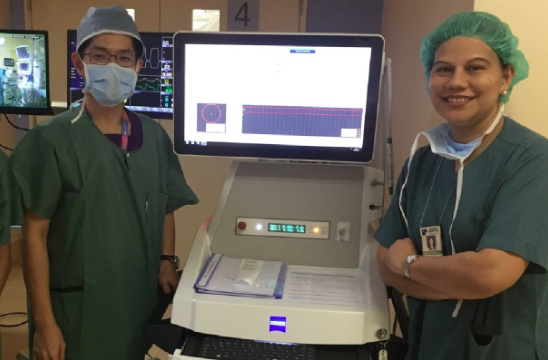Dr Mastura overcomes gender stereotyping to become successful oncologist
Oncology was seen as a male-dominated field then as not many women were interested in pursuing it.

KUALA LUMPUR - When Dr Mastura Md Yusof was posted to the Oncology and Radiotherapy Department at Sarawak General Hospital in Kuching in 1999, she was the only female medical officer there.
Later, when she embarked on a four-year Master of Clinical Oncology programme (June 2005 to June 2009) at Universiti Malaya, some of her seniors discouraged her from pursuing oncology and suggested other fields that were "more suitable” for female doctors like her.
"This happened in the earlier part of the programme. When I expressed interest and requested assistance in terms of guidance and borrowing reading materials, guidelines and books on oncology, they (seniors) told me oncology was not suitable for me. They said (either) paediatrics or gynaecology suited me better,” Dr Mastura, 51, recalled.
She said their comments made her feel anxious, causing her to question whether she could manage the rigorous demands of studying and practising oncology, one of the most challenging disciplines in medicine.
Despite the challenges and obstacles she faced, including societal expectations and cultural norms, she pursued her dream and today Dr Mastura is a successful oncologist and a key opinion leader in her field.
She is currently head of oncology services at Pantai Hospital Kuala Lumpur and a consultant in oncology at Subang Jaya Medical Centre, overseeing all aspects of cancer care including drug therapies, radiation and various clinical research.
She is also a consultant clinical oncologist at Picaso Hospital in Petaling Jaya.
MALE-DOMINATED
The fact is before and during the early 2000s, there were only a handful of female oncologists in Malaysia. Out of the 30 oncologists available then, only five were women.
At that time, even oncology-radiotherapy departments were scarce in Malaysia's healthcare sector - only four Health Ministry (MOH) hospitals along with three university hospitals and 15 private hospitals provided cancer diagnoses and treatments to the public.
Oncology was seen as a male-dominated field then as not many women were interested in pursuing it, probably because the challenges of studying oncology - a branch of medicine that specialises in the diagnosis and treatment of cancer - were seen as unbearable for women.
When met by Bernama recently after an event here by healthcare company Novartis Malaysia to recognise women’s contributions to the healthcare sector, Dr Mastura said during her stint at Sarawak General Hospital from September 1999 to July 2001, she found that oncology was an unpopular specialisation for women and the hospital’s Oncology and Radiotherapy Department often faced a shortage of medical officers.
"When I was posted to this department, I was 26 years old and a new medical officer. Usually, medical officers posted there only stay for a minimum of three months as they cannot cope with the work environment and stress. But I persevered (as I wanted to specialise in oncology),” she said.
Dr Mastura also saw it as a golden opportunity to challenge the status quo and break the gender stereotyping in oncology, believing that women had the potential to excel in the field.
BREAKING THE BIAS
She added in the early years of her career, it was easy for young aspiring oncologists like her to become disheartened as the oncology field lacked personnel, resources, good innovative drugs and healthcare facilities.
"I used to think pursuing oncology was too big a mountain for a junior doctor like me to climb. But then, I thought about how weird it would be to let other people determine my own potential or future.
"I do thank God for the unique and challenging circumstances I was in then that led to my decision to join this field around 24 years ago, and I have not looked back since,” she said, adding she owes her success to her father who taught his children not to consider their gender when pursuing their dreams.
Dr Mastura also noted that over the years, there has been rapid development and advances in Malaysia’s oncology services, with 180 oncologists - nearly half of them women - now serving at various hospitals nationwide.
From just five female oncologists in 2002, the number swelled to 80 in 2022 and 88 this year.
While Dr Mastura sees this as a positive development, she said there is still an obvious dominance of males in leadership positions in oncology, unlike other disciplines like surgery or orthopaedics.
Citing an example of the existing gender bias, she said more male oncologists are offered spots on hospital advisory boards or conference sponsorships or speaking roles.
"(Oncology) departments (at hospitals) must provide women with equal opportunities and support, as well as space for them to raise their families,” she added. - BERNAMA










